Children develop at different rates, and parents may wonder how many words should a 15 month old say. While there is no exact number, most 15-month-olds will have a vocabulary of around 5-20 words.
It’s important to remember that language development is a process and not a race.
Understanding language development is key to knowing what to expect from your child. Language development starts from birth and continues throughout childhood.
At 15 months, children are in the early stages of language development and are beginning to understand more words than they can say. They may also be experimenting with different sounds and babbling more frequently.
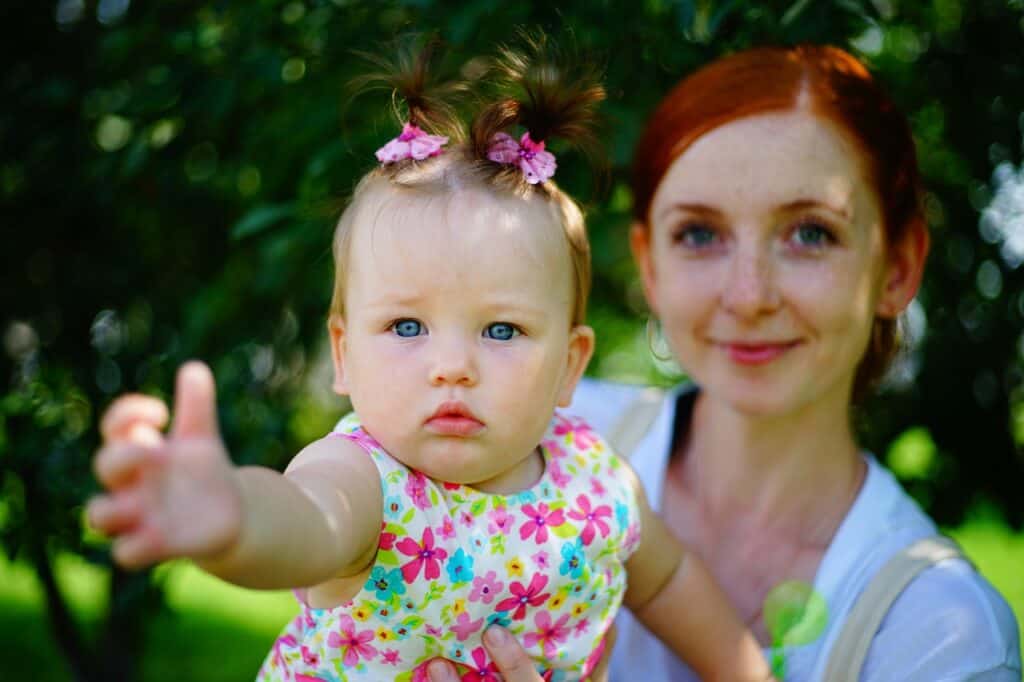
Key Takeaways:
- Most 15-month-olds will have a vocabulary of around 5-20 words.
- Language development is a process that starts from birth and continues throughout childhood.
- Children at 15 months are in the early stages of language development and are beginning to understand more words than they can say.
1. Understanding Language Development
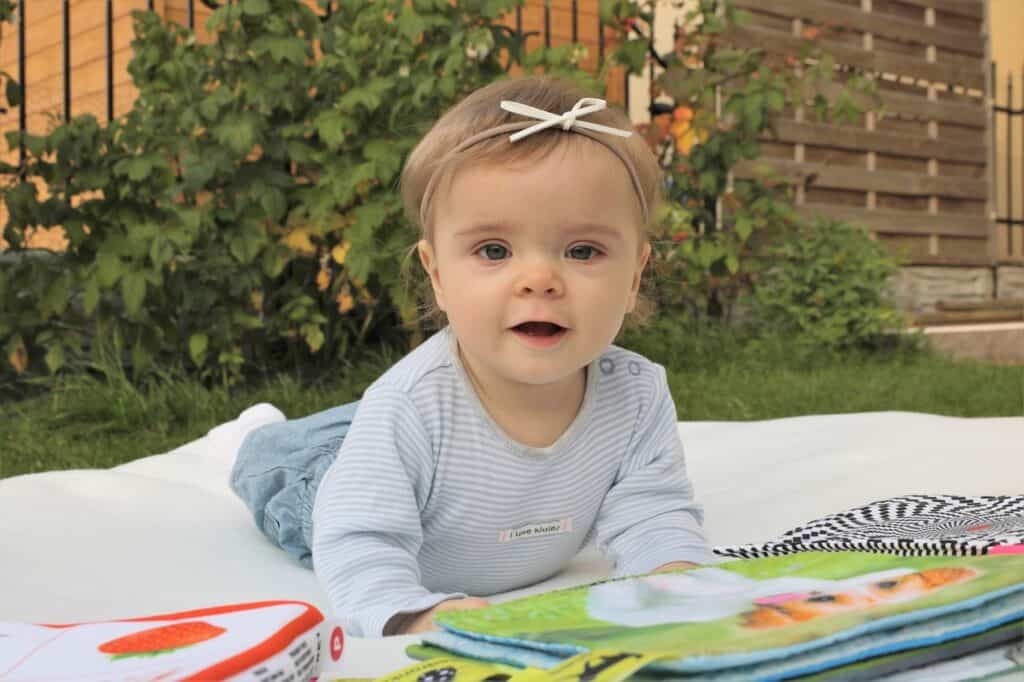
Language development is a complex process that begins at birth and continues throughout early childhood. It involves the development of a range of skills, including communication, speech, and language.
At 15 months, children are still in the early stages of language development, and it is normal for them to have a limited vocabulary and to be babbling more than speaking.
Babbling is an important part of language development, as it helps children to practice the sounds and rhythms of language. As children continue to develop, they will begin to use words to communicate their needs and wants.
By 15 months, most children can say a few simple words, such as “mama” or “dada,” and may be able to understand a few simple instructions.
It is important to remember that all children develop at their own pace, and there is a wide range of normal when it comes to speech and language skills. Some children may be more advanced in their language skills, while others may be slower to develop.
However, if you have concerns about your child’s speech and language development, it is important to speak with your pediatrician or a speech-language pathologist.
In addition to babbling and speaking, there are other important aspects of language development, including listening, understanding, and social communication. Children need to be able to listen and understand what others are saying in order to develop their own language skills.
They also need to learn how to use language in social situations, such as taking turns in a conversation and understanding nonverbal cues.
Overall, understanding language development is an important part of supporting your child’s growth and development. By providing a supportive and nurturing environment, you can help your child develop the skills they need to communicate effectively and thrive.
2. Expected Vocabulary for a 15 Month Old
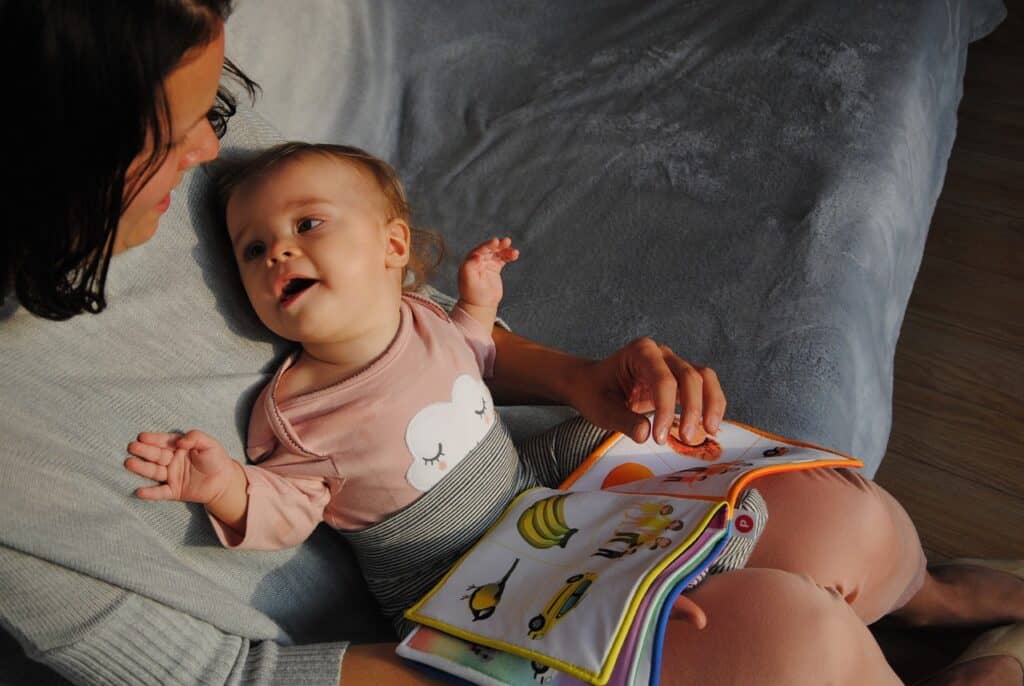
At 15 months old, most children have developed a basic vocabulary of a few words. Although the exact number of words a 15-month-old should say varies, most children can say at least a few words.
It is important to note that some children may develop language skills faster or slower than others, and that is normal.
At this age, children typically have a vocabulary of about 5-10 words. These words may include simple nouns such as “mama,” “dada,” “ball,” “dog,” and “food.”
They may also be able to say simple verbs such as “eat” or “drink.”
It is common for children to have a preference for certain words, and they may repeat them frequently. For example, a child may say “mama” or “dada” repeatedly, even if they do not have a clear understanding of what the words mean.
In addition to single words, children may also begin to use simple phrases, such as “more cookie” or “spoon please.” They may also be able to follow simple instructions, such as “come here” or “give me the ball.”
Overall, a 15-month-old’s vocabulary is still quite limited, but they are beginning to develop the basic language skills that will continue to grow and develop over time.
3. Significance of First Words

The first words a baby speaks are a significant milestone in their language development. It marks the beginning of their ability to communicate with others and express their thoughts and feelings.
At 15 months old, most babies should be able to say a few words, and this is an important stage in their language development.
The first words a baby speaks are usually simple and easy to understand, such as “mama,” “dada,” “ball,” or “dog.” These words are often related to people or objects that are important to the baby, and they are a reflection of the baby’s interests and experiences.
The ability to say their first words also helps babies to develop their social skills, as it allows them to interact with others and establish a connection with the people around them. It is important for parents and caregivers to encourage babies to speak and respond to their attempts at communication, as this can help them to develop their language skills further.
It is important to note that every baby develops at their own pace, and some babies may take longer to say their first words than others. However, if a baby has not said any words by the age of 18 months, it may be a sign of a language delay, and parents should consult with a pediatrician or speech therapist.
In summary, the ability to say their first words is an important milestone in a baby’s language development. It allows them to communicate with others and develop their social skills, and it is important for parents and caregivers to encourage and support their attempts at communication.
4. Stages of Language Development
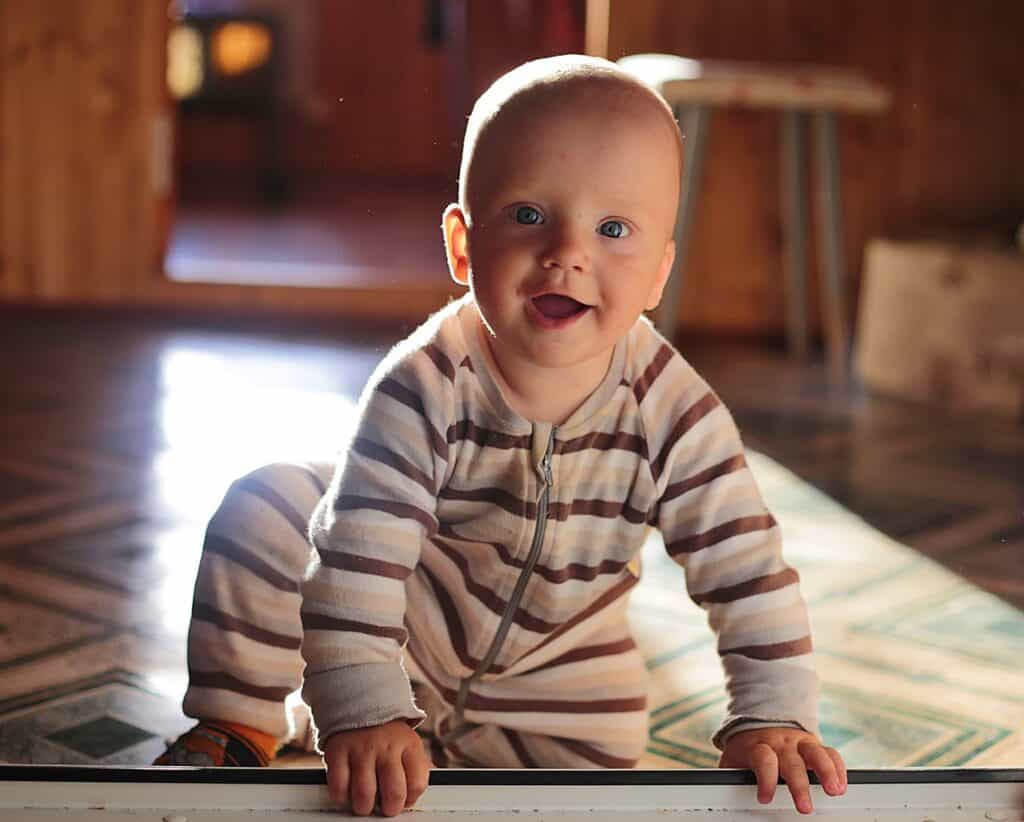
Language development is a complex process that begins at birth and continues throughout a child’s life. During the first few years of life, children go through different stages of language development.
These stages are characterized by the acquisition of new skills and the refinement of existing ones.
6-12 Months
At around 6 months of age, babies start to babble and produce sounds that resemble speech. They begin to imitate the sounds they hear around them, such as “ma-ma” and “da-da”.
By 12 months, most babies can say a few words, such as “mama” and “dada”, and understand simple commands, such as “come here” and “give me”.
12-18 Months
Between 12 and 18 months of age, children’s vocabulary grows rapidly. They begin to use words to express their needs and wants, such as “more” and “juice”.
They also start to use gestures, such as pointing and waving, to communicate. By 18 months, most children can say around 20 words and understand many more.
18-24 Months
Between 18 and 24 months of age, children’s language skills continue to develop. They begin to use two-word phrases, such as “my toy” and “bye-bye”.
They also start to use pronouns, such as “me” and “you”, and understand simple questions, such as “what’s that?” and “where’s daddy?”. By 24 months, most children can say around 50 words and use simple sentences.
24-36 Months
Between 24 and 36 months of age, children’s language skills become more complex. They begin to use three-word phrases, such as “I want that” and “give me more”.
They also start to use prepositions, such as “in” and “on”, and understand more complex questions, such as “why?” and “how?”. By 36 months, most children can say around 1,000 words and use more complex sentences.
Overall, language development is a gradual process that varies from child to child. While some children may reach certain developmental milestones earlier or later than others, it is important to provide them with opportunities to communicate and interact with others to support their language development.
4. Identifying Objects and Responding to Directions
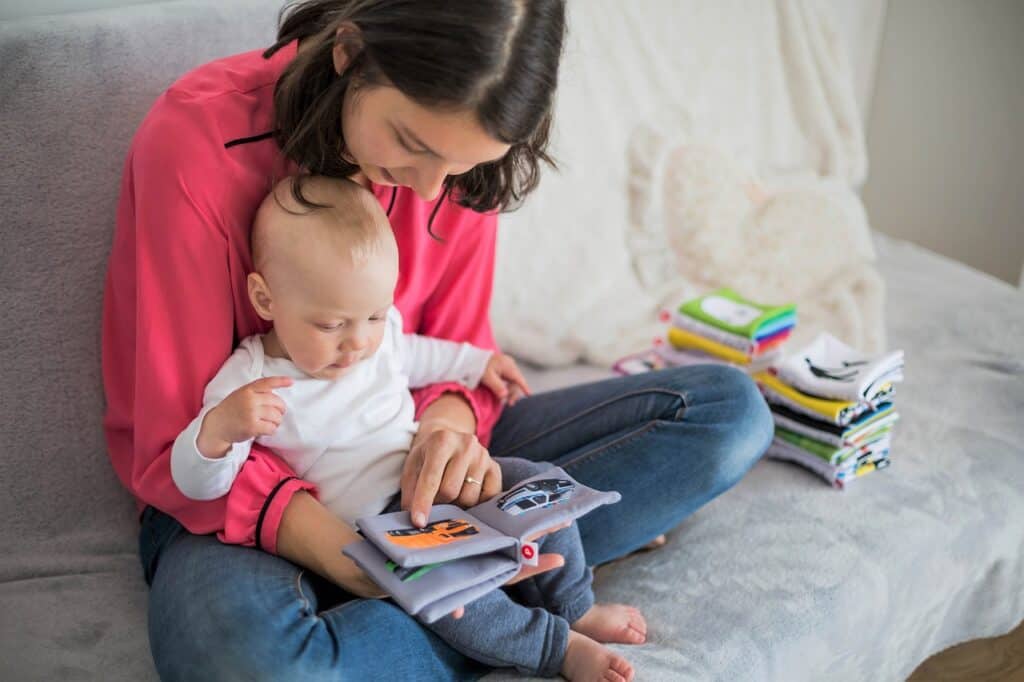
At 15 months old, a child may begin to recognize and identify familiar objects. They may also start to respond to simple directions given by adults.
It is important to note that every child develops at their own pace, and some may take longer to reach these milestones.
When it comes to identifying objects, a 15-month-old may be able to point to or name a few familiar objects such as “ball” or “book.” They may also be able to match objects to pictures in a book.
Encouraging this type of play can help strengthen their vocabulary and object recognition skills.
In terms of responding to directions, a 15-month-old may be able to follow simple commands such as “come here” or “give me the toy.” They may also be able to understand and respond to simple questions such as “where is your nose?” or “can you wave goodbye?” Providing clear and simple directions can help them understand and follow instructions.
It is important to continue to expose children to new objects and experiences to help expand their vocabulary and understanding of the world around them. As they continue to develop and grow, they will become more confident in their ability to identify objects and respond to directions.
6. The Role of Parents in Language Development
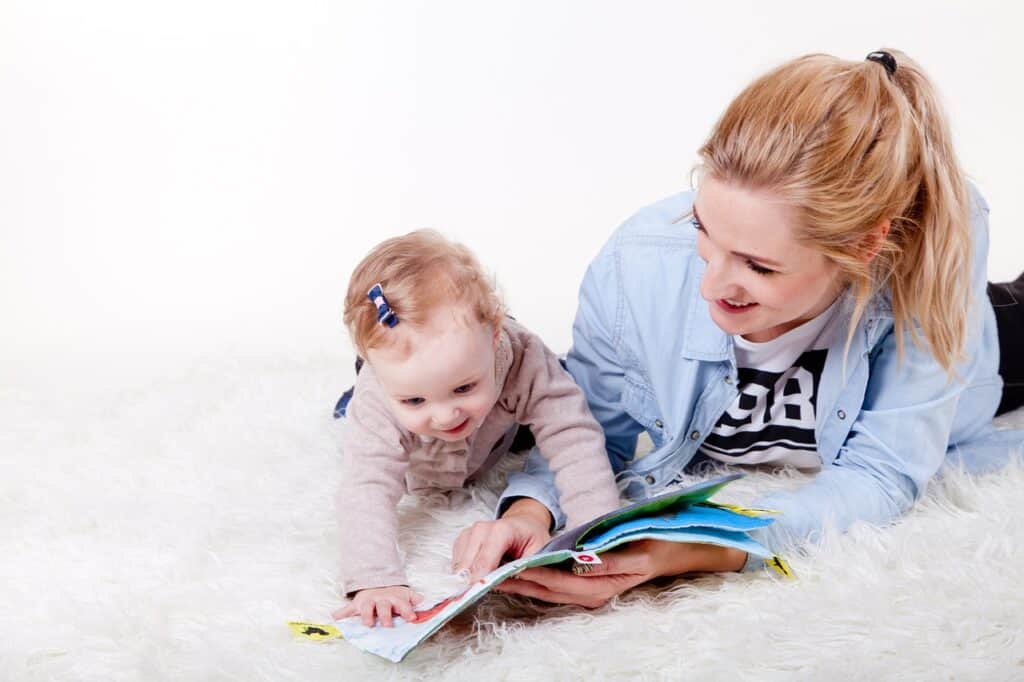
Parents play a crucial role in their child’s language development. From the moment a child is born, parents can start encouraging their child’s language skills by talking to them regularly, reading to them, and engaging in conversation.
Encouraging a child to talk is important, but it is also important to remember that every child develops at their own pace. Some children may start speaking earlier than others, and some may take longer to develop their language skills.
Parents should not be overly concerned if their child is not speaking as many words as other children their age.
One way parents can encourage language development is by talking to their child throughout the day. This can include describing what they are doing, asking the child questions, and pointing out objects in their environment.
Reading to a child is also a great way to encourage language development. Parents can use books to introduce new words and concepts to their child.
Engaging in conversation with a child is another important aspect of language development. When a child is trying to communicate, parents should listen carefully and respond appropriately.
This helps the child learn how to communicate effectively and builds their confidence in their language skills.
Overall, parents can play a significant role in their child’s language development by encouraging them to talk, reading to them, and engaging in conversation. By providing a supportive environment, parents can help their child develop strong language skills that will benefit them throughout their life.
7. Understanding Milestones and Delays
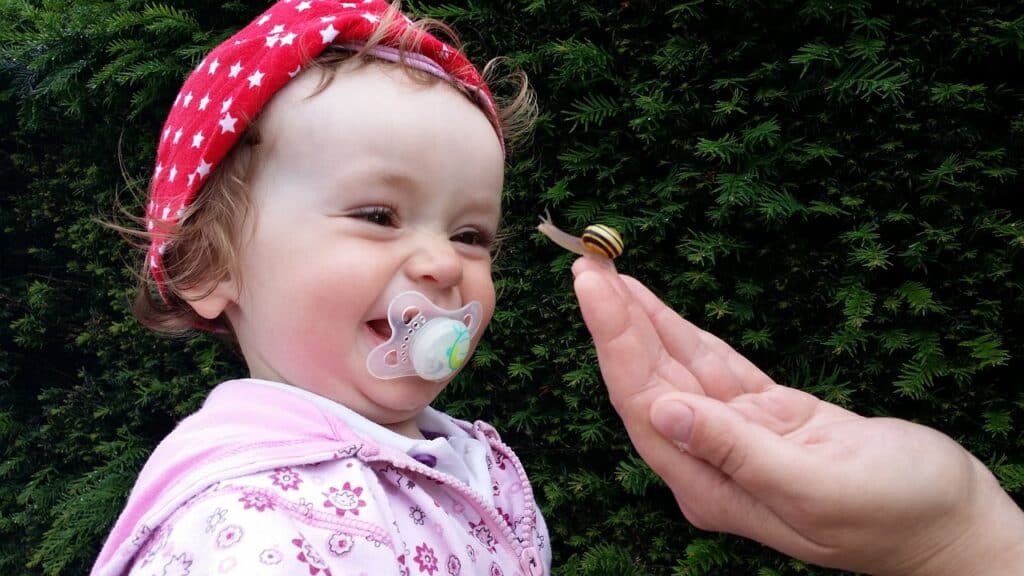
As children grow and develop, they reach various milestones that are indicative of their progress. These milestones can vary from child to child, but there are general guidelines for what to expect at certain ages.
One important milestone is speech development, which begins at birth and continues throughout childhood.
At 15 months old, a child should have a vocabulary of around 5-10 words, and they should be able to understand and follow simple instructions. They should also be able to communicate basic wants and needs through gestures and sounds.
However, it’s important to note that not all children develop at the same rate, and some may experience delays in speech development. Speech delay is when a child is not meeting the expected milestones for their age in terms of speech and language.
If a child is experiencing speech delay, it’s important to seek out a developmental screening. This is a process in which a healthcare professional assesses a child’s development to determine if there are any delays or concerns.
Early intervention programs can then be put in place to help the child catch up to their peers.
It’s important to approach speech delay with a neutral and knowledgeable perspective. While delays can be concerning, it’s important not to jump to conclusions or make exaggerated claims.
With proper screening and intervention, many children with speech delay can catch up and thrive.
8. Language Development and Health
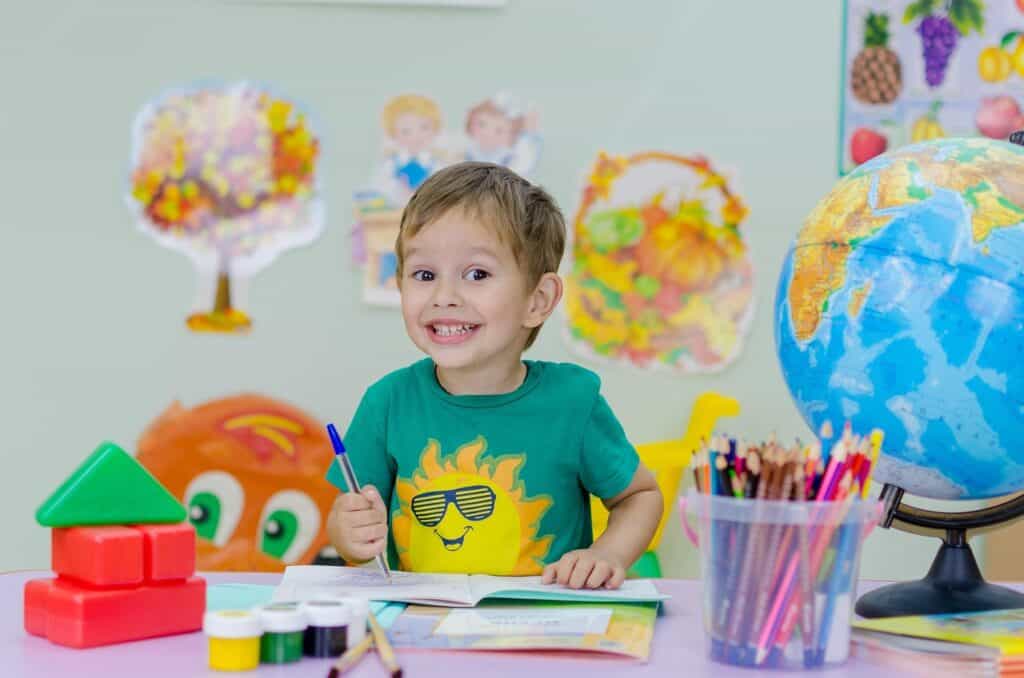
At 15 months old, it is expected that a child will start to say a few words and communicate with gestures. Language development is an important aspect of a child’s overall health and well-being.
Pediatricians often monitor a child’s language development during regular check-ups to ensure that they are meeting their milestones.
If a child is not saying any words by 15 months, it may be a cause for concern. However, it is important to note that every child develops at their own pace.
Some children may start speaking earlier, while others may take a little longer. It is important to discuss any concerns with a pediatrician.
There are several factors that can affect a child’s language development, including genetics, environment, and exposure to language. Parents can help support their child’s language development by talking to them often, reading books, and singing songs.
It is also important to note that language development is not just about speaking words. It also includes understanding language, using gestures, and making connections between words and objects.
Pediatricians may use standardized language assessments to monitor a child’s progress and identify any potential delays.
Overall, language development is an important aspect of a child’s health and well-being. Parents should work with their pediatrician to ensure that their child is meeting their language milestones and receiving any necessary support.
9. Impact of Toys and Play on Language Development

Toys and play are important tools for children’s language development, as they provide opportunities for children to learn new words and concepts. Gestures, imagination, and pretend play with toys such as a stick or broom can also contribute to language development.
During playtime, children are exposed to new words and concepts that they may not encounter in everyday conversation. For example, a child may learn the words “dump truck” and “excavator” while playing with toy construction vehicles.
This exposure to new vocabulary can help expand a child’s language skills.
Gestures also play a role in language development. When a child points to an object or uses gestures to communicate, they are learning to associate words with actions and objects.
This can help with language comprehension and expression.
Imagination and pretend play with toys such as a stick or broom can also contribute to language development. When a child uses a stick as a sword or a broom as a microphone, they are engaging in imaginative play that requires them to use language to communicate their ideas and actions.
Overall, toys and play can have a positive impact on a child’s language development. By providing opportunities for children to learn new words and concepts, use gestures to communicate, and engage in imaginative play, parents and caregivers can help support their child’s language skills.
10. The Influence of Eating and Food Related Words
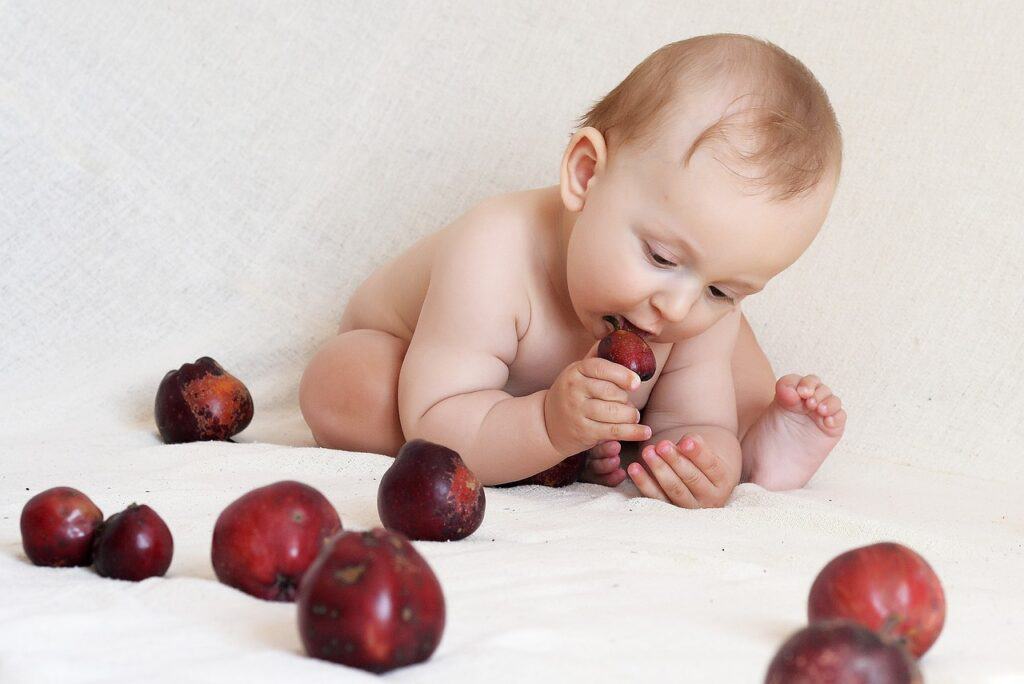
At 15 months, children are still in the early stages of language development. However, they are already starting to understand and use words related to eating and food.
This is because food is an important part of their daily routine and they are exposed to it on a regular basis.
Research has shown that the frequency and variety of food-related words that children hear can have an impact on their language development. Children who are exposed to a larger variety of food-related words tend to have a larger vocabulary and better language skills overall.
Parents can encourage their child’s language development by talking to them about food during meal times. This can include naming different foods, describing their taste and texture, and talking about where they come from.
It’s also important to use simple, clear language that is easy for the child to understand.
In addition to talking about food during meal times, parents can also read books about food and cooking with their child. This can help to expand their vocabulary and expose them to new words and concepts related to food.
Overall, the influence of eating and food-related words on a 15-month-old’s language development is significant. By exposing children to a variety of food-related words and concepts, parents can help to encourage their child’s language development and set them up for success in the future.
11. The Role of Technology in Language Development
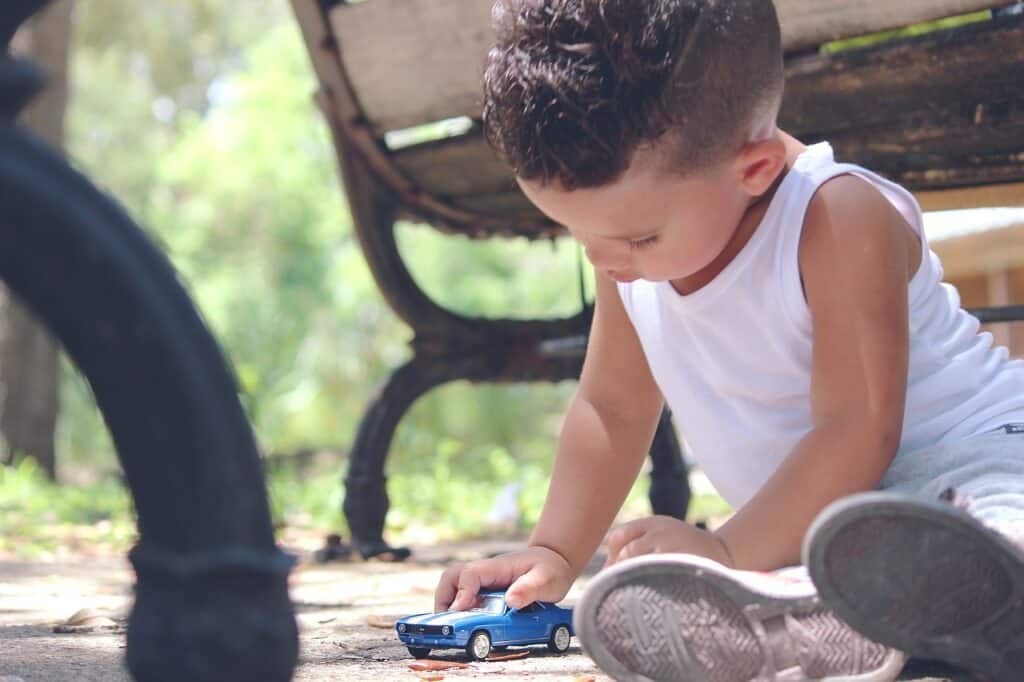
Technology has become an integral part of modern parenting, and many parents turn to mobile apps and devices to help their children learn and develop. When it comes to language development, there are a variety of apps and tools available that can be helpful for parents of 15-month-olds.
One popular tool for tracking language development is milestone tracker apps. These apps allow parents to input information about their child’s language development and track their progress over time.
Some of these apps even offer personalized recommendations for activities and exercises that can help encourage language development.
Both iOS and Android offer a variety of language development apps for children, including interactive games and activities that can help children learn new words and concepts. These apps can be a fun and engaging way to encourage language development in young children.
It’s important to note, however, that technology should not be relied upon as the sole means of language development. While apps and devices can be helpful tools, it’s important for parents to also engage in face-to-face interactions with their children and provide ample opportunities for language practice and development.
In conclusion, technology can play a role in language development for 15-month-olds, but it should be used in conjunction with other methods of language practice and development. Milestone tracker apps and language development apps can be helpful tools for parents, but they should not be relied upon as the sole means of language development.
12. Language and Emotional Development
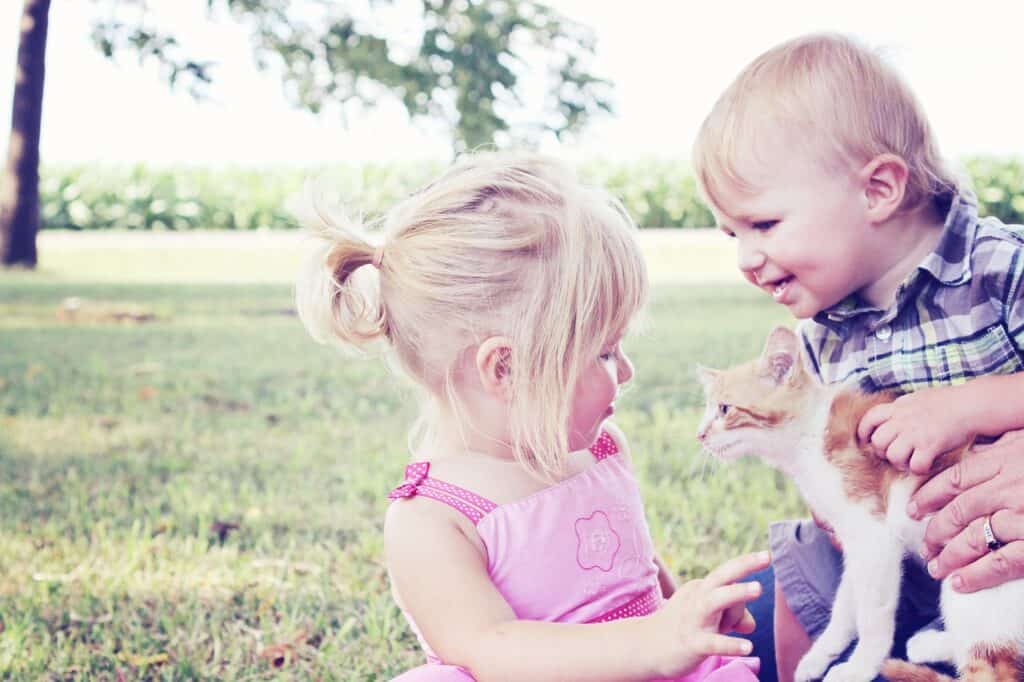
At 15 months, children are typically able to say a few words and understand many more. Language development is closely linked to emotional development, as it allows children to communicate their feelings and needs to others.
During this stage, children may begin to use simple words to express emotions such as “happy”, “sad”, and “tired”. They may also use gestures, such as pointing or waving, to communicate.
It is important for caregivers to respond to these attempts at communication in order to encourage language development and build strong emotional bonds with the child.
In addition to language development, 15-month-old children are also developing their personalities and preferences. They may show likes and dislikes for certain foods, toys, and activities.
Caregivers can support emotional development by providing a safe and nurturing environment that allows the child to explore and express themselves freely.
Social and emotional milestones at 15 months may include the ability to show affection, such as hugging or kissing, and the ability to imitate others’ actions and emotions. Children at this age may also begin to understand simple instructions and follow routines.
Overall, language and emotional development are closely intertwined during the 15-month stage. Caregivers can support this development by providing a supportive and nurturing environment that encourages communication and emotional expression.
13. Understanding Different Types of Words
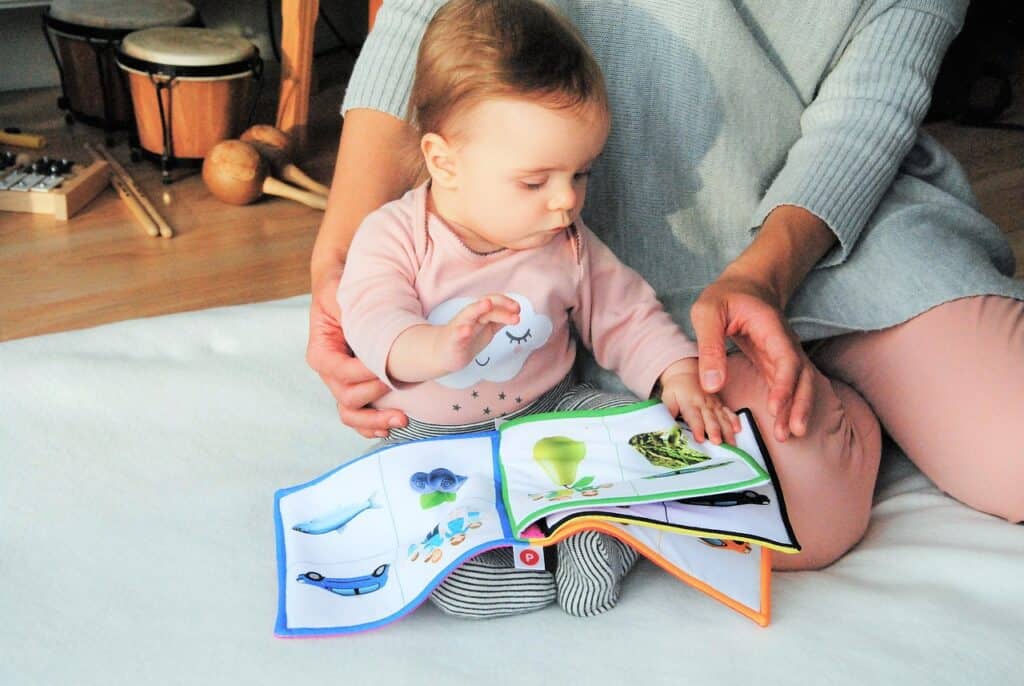
At 15 months, a child’s vocabulary is still developing, and they may not be able to say many words. However, it is important to understand the different types of words that they may be able to use.
Nouns
Nouns are words that refer to people, places, things, or ideas. At 15 months, a child may be able to say simple nouns such as “mama,” “dada,” “ball,” or “dog.”
Verbs
Verbs are words that describe an action or state of being. At 15 months, a child may be able to say simple verbs such as “eat,” “drink,” “sleep,” or “play.”
Prepositions
Prepositions are words that show the relationship between a noun or pronoun and other words in a sentence. At 15 months, a child may not be able to say prepositions on their own, but they may use them in simple phrases such as “up,” “down,” or “in.”
Phrases
Phrases are groups of words that work together to convey meaning. At 15 months, a child may be able to use simple phrases such as “all done,” “more please,” or “bye-bye.”
Simple Phrases
Simple phrases are short phrases that convey a complete thought. At 15 months, a child may be able to use simple phrases such as “I want milk,” “Where’s the dog?” or “No, mine.”
10 Words
By 15 months, a child may be able to say up to 10 words. These words may include simple nouns, verbs, and phrases.
Understanding the different types of words that a 15-month-old may be able to use can help parents and caregivers better communicate with the child and encourage their language development.
14. The Role of Music in Language Development

Music has been shown to play an important role in language development in children. Research has found that exposure to music can help children develop their language skills, including their ability to recognize and produce speech sounds, learn new words, and understand grammar.
One way that music can help with language development is by providing a rich auditory environment. Music is full of different sounds and rhythms, which can help children learn to distinguish between different speech sounds.
This can be especially important for children who are learning a second language, as they may have difficulty distinguishing between sounds that are not present in their native language.
In addition to providing a rich auditory environment, music can also help children learn new words and understand grammar. Songs often contain repetitive phrases and rhymes, which can help children remember new words and their meanings.
This can be especially helpful for children who have difficulty with traditional language learning methods.
Finally, music can be a fun and engaging way to encourage language development in children. Singing and dancing to songs can help children develop their motor skills, while also providing an opportunity to practice their language skills in a fun and interactive way.
Overall, the role of music in language development is an important area of research, and one that continues to be explored by scientists and educators alike. By incorporating music into early childhood education, parents and educators can help children develop their language skills in a fun and engaging way.
15. Cognitive and Physical Development Related to Language

At 15 months old, children are experiencing a rapid growth in their cognitive and physical development. These developments are closely related to their language development.
Cognitive milestones include the ability to understand simple instructions and follow them, as well as an increased ability to recognize familiar objects and people. These milestones are important in language development as they form the foundation for a child’s ability to understand and use language.
Movement and physical development milestones are also closely related to language development. At 15 months old, most children are able to walk independently, which allows them to explore their environment more freely and engage in more social interactions.
These interactions provide opportunities for children to practice their language skills and learn new words.
Growth is another important factor in language development. As children grow, their brain develops and matures, which allows them to process and understand language more effectively.
In summary, a child’s cognitive and physical development are closely related to their language development. As children reach important milestones such as walking independently and understanding simple instructions, they are better able to engage with their environment and practice their language skills.
16. Language Development and Behavior

At 15 months of age, children are expected to have started developing their language skills. They may not be able to speak full sentences, but they should be able to communicate their needs through gestures and a few words.
Language development is a complex process that is influenced by various factors such as genetics, environment, and the child’s behavior.
Children at this age are generally very curious and eager to explore their environment. They tend to listen attentively to the sounds around them and try to imitate them.
It is important for parents and caregivers to provide a conducive environment that encourages the child to listen and communicate.
Some common behaviors that may be observed in a 15-month-old include babbling, pointing, and making eye contact. These behaviors are an indication that the child is trying to communicate and should be encouraged.
It is important to note that every child develops at their own pace, and some may take longer to develop their language skills. Parents and caregivers should be patient and provide support to the child as they learn to communicate effectively.
In summary, language development is a crucial aspect of a child’s overall development. Parents and caregivers should provide a conducive environment that encourages the child to listen and communicate.
Children at this age should be encouraged to express themselves through gestures and simple words.
17. Understanding Sounds and Speech Sounds

At 15 months old, a child’s language development is rapidly progressing. They are beginning to understand more words and are starting to form their own words.
It is important for parents and caregivers to understand the different types of sounds and speech sounds that a child may make during this stage of development.
Sounds
Babies make a variety of sounds, including cries, coos, and babbles. Cries are the earliest form of communication and are used to express discomfort or hunger.
Coos are vowel-like sounds that babies make when they are content or happy. Babbling is when a baby combines consonants and vowels together, such as “ba-ba” or “ma-ma”.
Speech Sounds
Speech sounds are the building blocks of language. At 15 months old, a child should be able to say a few words, such as “mama” and “dada”.
They may also be able to imitate other sounds, such as animal sounds or car noises. It is important to note that each child develops at their own pace, and some children may be slower or faster than others.
Voice
A child’s voice is an important part of their language development. It is how they express themselves and communicate with others.
At 15 months old, a child’s voice may be high-pitched or squeaky. As they continue to develop, their voice will become more mature and will begin to sound like an adult.
Cries
Crying is a natural way for a baby to communicate their needs. At 15 months old, a child may still cry when they are hungry, tired, or uncomfortable.
It is important for parents and caregivers to respond to a child’s cries and try to meet their needs.
Babble
Babbling is an important part of a child’s language development. It is how they practice making sounds and putting them together.
At 15 months old, a child may be babbling more frequently and may be able to combine more sounds together.
Overall, understanding sounds and speech sounds is an important part of a child’s language development. Parents and caregivers can help support their child’s development by talking to them, reading to them, and responding to their needs.
18. The Role of the CDC and Other Organizations in Language Development
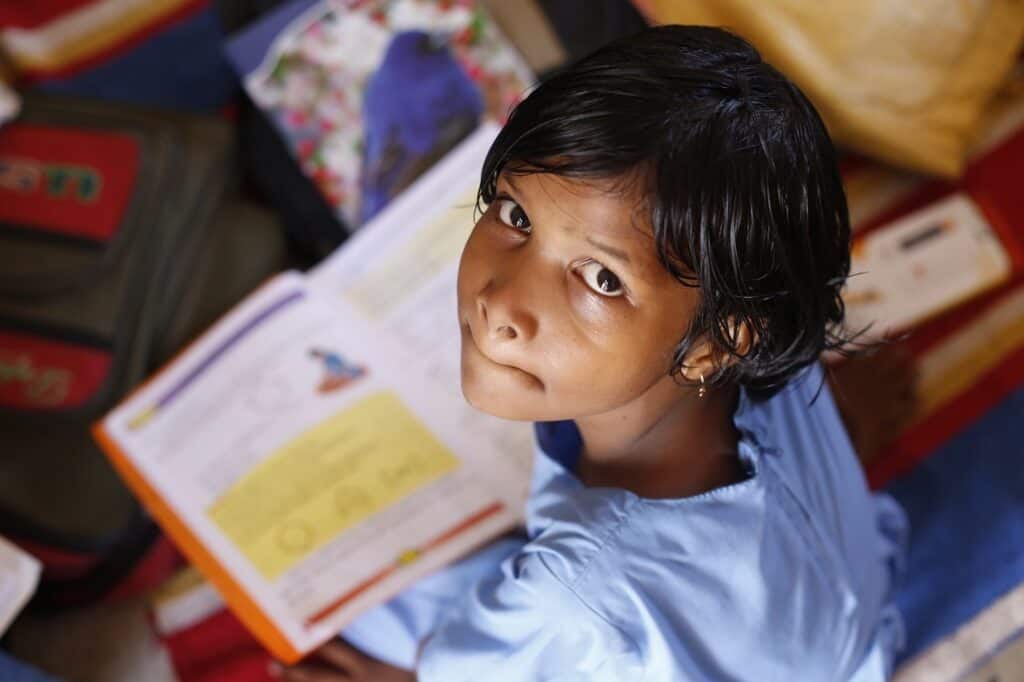
The Centers for Disease Control and Prevention (CDC) and the National Institute on Deafness and Other Communication Disorders (NIDCD) are two organizations that play a significant role in language development.
The CDC has developed guidelines for parents and healthcare providers to help monitor and promote language development in children. These guidelines include milestones for language development, such as the number of words a child should be saying at different ages.
The CDC also provides resources for parents and healthcare providers to help identify and address language delays and disorders.
Similarly, the NIDCD conducts research on language development and disorders and provides information and resources to parents and healthcare providers. The NIDCD also funds research to better understand language development and to develop new treatments for language disorders.
Both organizations emphasize the importance of early intervention for language delays and disorders. Early identification and treatment can improve outcomes for children with language disorders and can help prevent long-term language difficulties.
In addition to the CDC and NIDCD, there are many other organizations that play a role in language development, including speech-language pathologists, pediatricians, and early intervention programs. By working together, these organizations can help promote healthy language development in children and improve outcomes for those with language delays and disorders.
19. Importance of Saying Thank You and Other Common Phrases
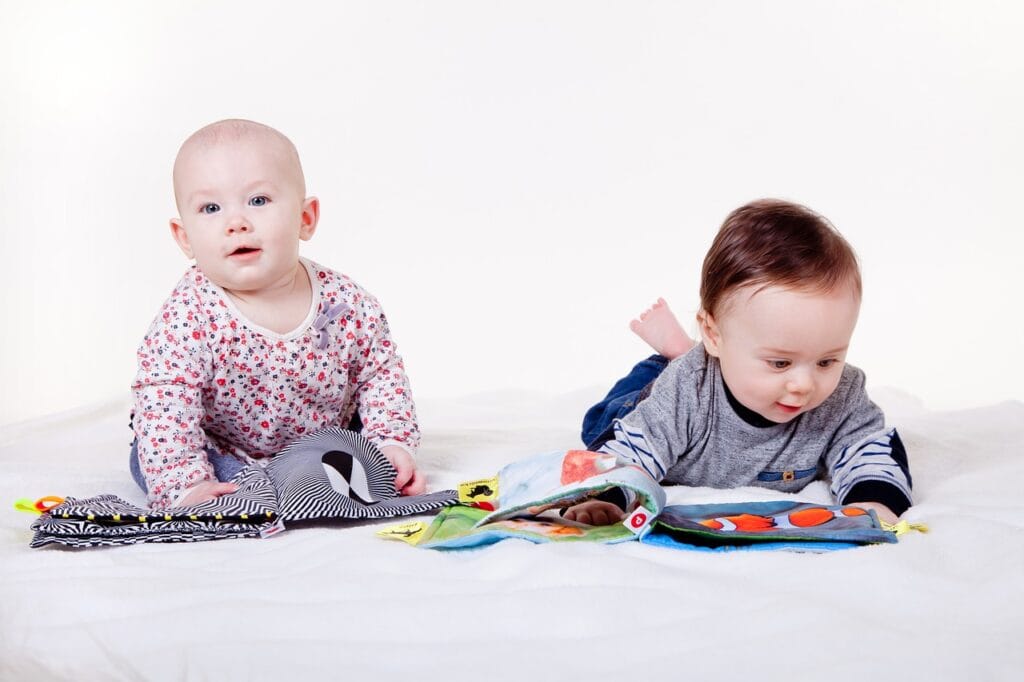
At 15 months old, toddlers are starting to understand the importance of communication and social interaction. One of the most important things they can learn is how to say “thank you” and other common phrases.
Saying “thank you” is not just about good manners. It also helps toddlers develop a sense of gratitude and empathy towards others.
When they receive something, whether it’s a toy or a snack, saying “thank you” shows that they appreciate the gesture and understand that someone has done something nice for them.
In addition to “thank you,” toddlers should also learn other common phrases such as “please,” “excuse me,” and “sorry.” These phrases help them navigate social situations and communicate their needs and wants in a polite and respectful manner.
Simple commands such as “come here,” “sit down,” and “put it back” are also important for toddlers to learn. These commands help them understand and follow directions, which will be essential as they grow and start attending school.
Overall, teaching toddlers the importance of saying “thank you” and other common phrases is crucial for their social and emotional development. It helps them communicate effectively, show gratitude and empathy towards others, and navigate social situations with confidence.
Learn expert advice on speech development from this article: 14 Month Old Not Talking
Frequently Asked Questions
What are the typical speech milestones for a 15-month-old?
By 15 months, most children can say a few words and understand simple instructions. They may also be able to communicate using gestures like pointing and waving.
Is it normal for a 15-month-old not to be talking yet?
Yes, it is normal for some 15-month-olds not to be talking yet. Every child develops at their own pace, and some may take longer to start speaking than others.
What are some common reasons a 15-month-old may not be talking?
Some common reasons for delayed speech in 15-month-olds include hearing problems, developmental delays, and lack of exposure to language. However, it’s important to note that not all children who are slow to start talking have underlying issues.
At what age should a 15-month-old start talking?
There is no set age at which a 15-month-old should start talking. However, most children will have started saying a few words by this age.
What are some words a 15-month-old should be saying?
By 15 months, children should be able to say a few simple words like “mama,” “dada,” and “bye-bye.” They may also be able to say the names of familiar objects and people.
How many words should a 15-month-old typically say?
On average, a 15-month-old will say around 5-10 words. However, every child is different, and some may say more or fewer words than this.

Iesha is a loving mother of 2 beautiful children. She’s an active parent who enjoys indoor and outdoor adventures with her family. Her mission is to share practical and realistic parenting advice to help the parenting community becoming stronger.
